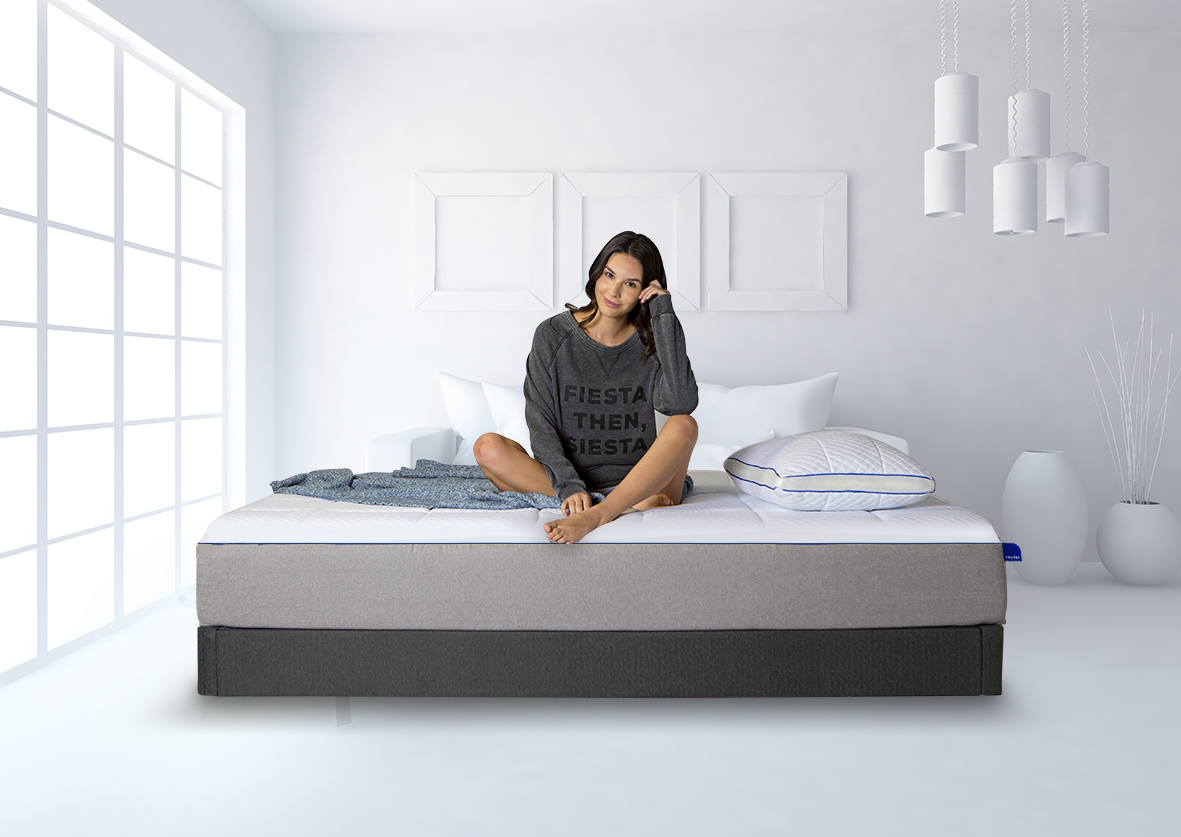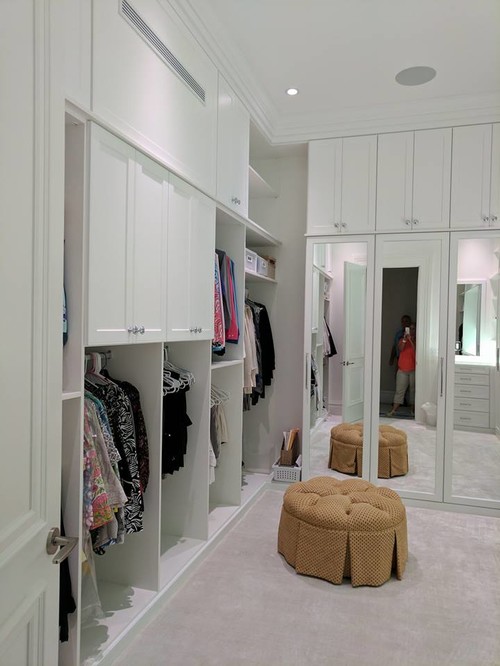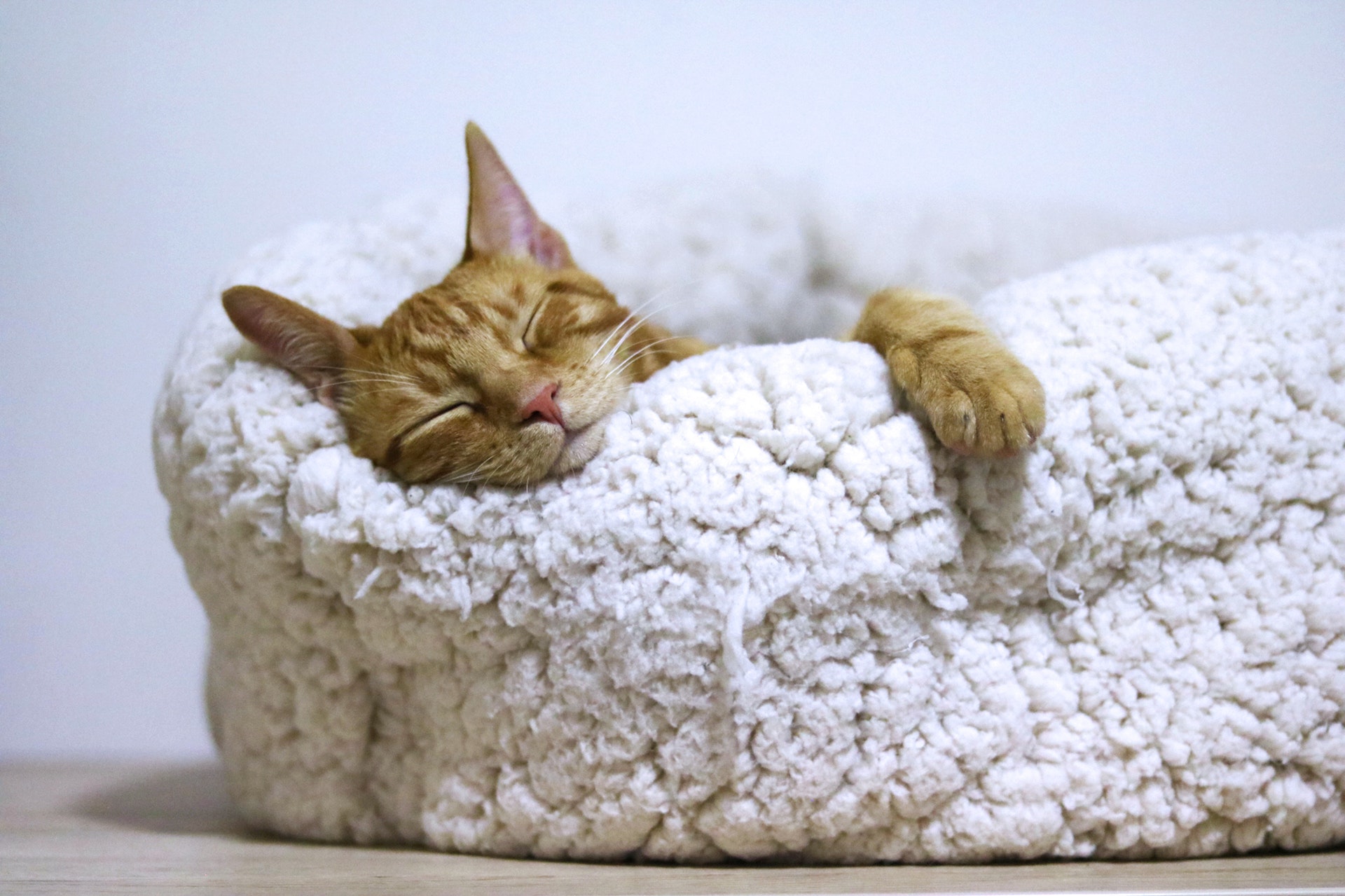If you’re like many people, you may find it difficult getting a good night’s sleep. When you spend half the night tossing and turning you’re going to wake up tired, cranky and out of sorts – this can definitely have a negative effect on how you feel during the day.
According to the Centers for Disease Control, more than one third of adults in the United States aren’t getting enough sleep. The American Academy of Sleep Medicine and the Sleep Research Society says that adults need seven or more hours of sleep per night for the best health and well being.
But when is the last time you got a good night’s sleep? Stress, anxiety, even an overly hot and disorganized room can all interfere with your normal sleep cycle. Learn a few tips on how you can a more peaceful and restful night’s sleep by making a few simple changes in your bedroom.
Making Sleep a Priority
Bill Fish, a certified sleep science coach and Co-founder of Tuck, covers just about every aspect of sleep and mentions, “At the end of the day, sleep is now considered the third pillar of wellness along with diet and exercise, but it needs to be a priority.”
He recommends making an effort to transform your bedroom into a sleep sanctuary. “Many of us focus too much on the quantity of sleep, rather than the quality. One of the major keys to improving the quality of your sleep is to take a look at the environment you sleep in. Let’s face it, our lives are getting busier by the day. We are using our bedroom to get caught up on emails, folding laundry, packing, watching tv – but none of that is focusing on sleep.”
Fish goes on to say that, “While it may require a little effort, transforming your bedroom into the perfect sleep environment is an excellent way to move toward higher quality sleep on a nightly basis.”

Get a Good Nights’ Sleep
Sleeping better doesn’t have to be complicated – there are a few simple ways you can optimize your bedroom environment that help signal your body that it’s time for rest.
Learn how to sleep better by making these few simple changes in your bedroom:
- Keep out the light
- Limit electronic devices
- Invest in quality mattress
- Perfect pillow for sleep
- Comfortable bedding
- Cooler temperature
- The joy of a organized closet
Keep Bedroom Dark
When asked about the importance of keeping your bedroom dark and quiet at night Katie Golde, the Head of Sleep Research at Mattress Clarity says, “The darker you can get your bedroom, the better. This will not only help you fall asleep faster, but it will keep you sleeping longer as you’ll be less likely to wake up from disruptive light or sounds.
“You can block out external lights from your window by installing blackout curtains or you can use an eye mask – there are some really comfortable ones out there now. To mask disruptive noise, it’s easy to grab a cheap pair of earplugs or place a white noise machine or sound machine by your nightstand.”
Limit Electronic Devices
It’s long been recommended to turn off all your electronic devices at least 30 to 60 minutes before your bedtime. “Disconnecting allows you to spend peaceful time with loved ones, read, meditate, journal, or relax in some other way before falling asleep,” says Dr. David Geier, an orthopedic surgeon and sports medicine specialist in Charleston, South Carolina.
Marjorie Nass, a personalized yoga and lifestyle coach, mentions the importance of turning off electronic devices and winding down at the end of the day, “With too much mental stimulation in the evening, your brain gets fired up. If you’re still answering emails, watching a movie, searching online, or reading a tablet in bed, you simply won’t feel as tired compared to reading a real book or magazine, doing restorative yoga or practicing meditation.”
Dr. Geier says, “I strongly recommend to athletes, active adults and children that they should remove all electronics from the bedroom, including phones, TVs, tablets, laptops, and any other devices. They emit a blue light that makes it harder to fall asleep and interferes with the quality of sleep while they are asleep. Plus, people tend to stay up later than they intend to because they watch TV, text, or scroll through social media.”
So, the best advice is to keep your cell phones, laptops and tablets out of your bedroom and let them charge overnight in your home office or another room of the house.

Quality Mattress
Golde also mentions the need for a good quality mattress, “If you wake up during the night because you can’t get comfortable, maybe your neck is still or your lower back is hurting – it can greatly impact your quality of sleep in the long term.” She goes on to mention how the right mattress, such as a memory foam mattress for you is one that will help keep your head, neck, and spine in a neutral alignment. When it’s aligned properly, you won’t be placing any extra strain or tension on specific muscles or nerves.
“Your sleeping position will play a big role in which mattress is right for you” says Golde. “Typically, stomach sleepers need the firmest mattress to support the stomach and lower back. Back sleepers will find comfort with a middle of the road firmness level and side sleepers typically need the softest mattresses or at least one with the most pressure relief. This is the foundation of picking the right mattress but it can make a world of difference in a good night’s sleep.”
Erin Berman, Brand Strategy, Nectar by Resident, mentions how getting a good night’s sleep isn’t as easy as it used to be, “From late-night screen exposure to stress induced but new cultural norms, American’s are having a hard time falling asleep. The good news is there are some easy and effective steps you can take to getting better sleep.”
She says the first step to take is to invest in a quality mattress. “A good mattress can support your body throughout the night which helps you fall asleep fast, stay asleep longer, and wake up less throughout the night. You want to look for quality options, featuring premium materials that help support the body in any sleep position, as well as cooling technology to help with temperature regulation.
“Using a mattress with cooling foam has the benefit of helping regulate your body’s internal temperature throughout the night. Premium mattresses use cooling foam with an open cell structures which absorb and redistribute your body heat. This combination of breathability and support allows you to stay asleep throughout the night.”
Best Pillow for Sleep
Are you guilty of having a bed filled with half deflated pillows that can barely support the weight of your favorite stuffed animal? It might be time to invest in a new pillow. “It’s important to have your spine well supported while you sleep” says Dr. Liza Egbogah a leading body and posture expert and Clinical Director of The[FIX].
“If you’re a side sleeper, your pillow should be between the tip of your ear and your shoulder. If you’re a back sleeper – you should opt for a thin soft pillow to keep head in line with the rest of your body.” Dr. Egbogah also mentions that it’s okay to sleep with a pillow between your knees, as it will keep you from twisting your body out of alignment.
Cooler Temperature
Research shows that ambient temperature is the most crucial factor for quality sleep. Ed Pienkosz, head of sleep coaching at Beddr says, “Research has shown that a room temperature between 60 – 67 degrees is the optimal range for comfortable sleep. As our bodies enter sleep our natural temperature dips slightly as it goes through the different sleep stages.
“It’s important to have an environment that isn’t competing with our internal thermostat.” He goes on to say how bedding, clothing, air movement, and temperature are all things you can modify to help you fall asleep faster. “In fact it takes longer to fall and stay asleep when it’s hot, as many of you have experienced before.”
“One of the most important sleep hygiene tips is to make your room sleepable”, says Dr. Debbie Bernstein, a holistic certified functional medicine practitioner. “I have several natural solutions for a good night’s sleep. A very dark, cool room is best for sleep.”
Comfortable Sheets
Simple upgrades in your sleep environment can have a significant impact on sleep quality, and incorporating cooling bedding is one of the easiest – and most effective – ones you can make.
Christopher Sun, CEO of My Sheets Rock says, “There is a lot to consider when looking for the best cooling sheets and other bedding, but the most important factor to keep in mind is the type of material.” He goes on to mention that some fabrics, such as polyester and nylon, are less breathable and temperature-regulating than others. “My personal preference is bamboo, because of its many benefits for hot sleepers.”
“Bamboo fabric wicks moisture, reduces humidity, and stretches, all while staying extremely soft” says Sun. “Keep a close eye on the fabric contents and its benefits. Some brands that advertise bamboo sheets are actually made from bamboo polyester, which does not offer superior breathability and comfort. With the right material, you should be having a more comfortable sleep experience with less perspiring and waking up in the middle of the night due to overheating.”
Dr. Bernstein says, “A good way to keep cool is avoiding sheets made with synthetic materials. Also, a fabric made from a looser percale weave allows for air to circulate leading to more comfort. Keep a regular sleep schedule and create a relaxing bedtime routine which may include listening to the soothing sounds of nature, beautiful relaxing music or a guided meditation surrounded by your nice soft, comfortable sheets.”
Janet Wischnia of American Blossom Linens says “Choose sheets and bedding made from breathable material. I really like natural organic cotton sheets because they are soft, comfortable, eco-friendly and superbly durable.”

Marie Kondo Bedroom
A recent article published to The Creative Cottage lifestyle blog mentioned how you can declutter your apartment a la Marie Kondo’s KonMari method.
Fish mentions how the first step towards a peaceful and serene sleeping space is to remove all clutter around the room and shut all closets. “If we have dirty clothes, luggage, or frankly anything in the room, it causes our minds to race, and the bedroom should be set up for the sole purpose of relaxation and sleep.”
With that in mind, this next tip is how investing in a well-organized closet, with a space for everything and everything in its space, plays an important part in drifting off to sleep. “People care a lot about what their closets look like and how they function. Some people will come to me with Pinterest photos or Houzz photos to use for inspiration” says Michelle Woodring, Owner Designing and Organizing Solutions based out of Jupiter, Florida.
Michelle has more than 15-minutes claim to fame in the home storage industry. She and her amazing custom closet and cabinetry design company has been featured on season 5 and season 9 of The Vanilla Ice Project on the DIY Network. “Many people are going to a more minimalistic style and don’t always want dressers, side tables and other furniture taking up valuable space. If you have a well-organized closet you can get rid of a lot of the larger furniture in your bedroom.”
And, an added benefit of having a larger closet is that you can design a space that looks like a small dressing room or boutique clothing store. Woodring mentions that, “A closet organization system gives you this great feeling of order when you are starting your day as all your clothing and accessories are right in front of you.”
So, there you go, the top secrets you can use to create a tranquil bedroom space to help promote a restful night’s sleep.


